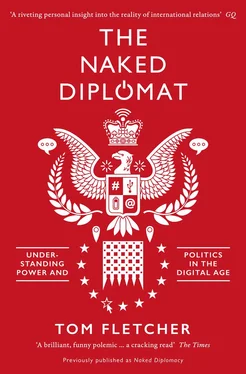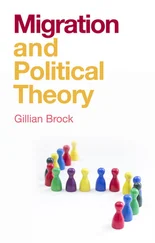As is probably already evident, Emperor Qin was no shrinking violet. The previous year he had tricked his elder brother, the rightful heir to the Qin dynasty, into committing suicide. Mercy had not got him his throne, and was not going to help him keep it.
In this case, Qin decided to punish poor execution with slow execution. Shen was tied to a wooden frame and ‘slow-sliced’, a particularly gruesome demise involving the methodical removal of 999 body parts in random order as drawn from a hat: death by a thousand cuts, give or take. The process, ‘ lingchi ’, literally means ‘ascending a mountain slowly’, a metaphor that resonated with his pre-summit diplomacy in a way that Shen was presumably unable to relish. His diplomatic failure was classified by the emperor as an act of treason, and so no opium was administered to ease the pain.
It is not recorded at what point in the three-day process Shen passed away. But his grisly exit provided evidence for Lu You, one of history’s first human rights activists, to argue in 1198 for the abolition of lingchi , which is the only reason we now know about the case. Again, probably no consolation to poor old Shen.
Shen discovered the hardest way that diplomacy is Darwinian: its practitioners need to evolve to survive.
In today’s diplomatic services, the consequences for poor performers are more time-consuming yet less draconian than they were for Qin. But given that the alternative to peacemaking is often war, our diplomatic failures and mistakes can still have the gravest fallout.
It matters that we get it right.
Historical tales of grisly deaths aside, formal diplomatic encounters with contemporary Asian governments are friendly but often fairly dry affairs. Perhaps it is the heat, the time difference, or the lengthy delays caused by translation. With our Chinese interlocutors it was often striking that the army of note-takers stopped writing when their leader spoke – not only out of deference, but because they already knew exactly what he was going to say. They would tell me that they found it odd that our prime ministers were so much less well disciplined.
So I was perplexed at one of these heavily choreographed exchanges to see several counterparts on the other side of the table stifling uncharacteristic giggles and passing notes. My diplomatic antennae were well attuned to spotting potential gaffes, especially those that would appeal to our mischievous travelling press lobby, ever ravenous for stories of incompetence – working with the UK media for the UK government is often like playing for a football team whose own fans have decided should be relegated.
Trying not to disturb my prime minister as he made a complex case through a flustered translator for the rebalancing of the global economy, I scoured the room for evidence of a problem, without success. Eventually I called over one of the embassy experts, who after some deliberation pointed out that it was my name plate in front of me (the wording of which was of course visible to everyone except myself) that had caused such confusion and hilarity. Someone had translated my job title – Private Secretary to the Prime Minister for Foreign Affairs – as ‘Intimate Typist for the Prime Minister’s Affairs Overseas’.
There are many, too many, bureaucratic positions around the average modern leader, but few leaders have an official to type out their love letters.
I spent four years in 10 Downing Street in the role of Private Secretary for Foreign Affairs, under three very different prime ministers: Tony Blair, Gordon Brown and David Cameron. I also helped to advise Deputy Prime Minister Nick Clegg in his first months in the role, giving me experience of the unholy trinity of major UK political parties.
Though the job involved little intimate typing, it did include briefing the prime minister, joining his official meetings, and circulating an account for ministries and embassies to digest and act on. The unofficial motto of the Private Secretary should be that ‘my job will be done when historians have read what I think he thinks he ought to have said’.
In reality, writing these records was only cover for the real job: a combination of policy adviser, journalist, negotiator, bag carrier and relationship manager. Occasionally I was also a therapist, administering reassurance and encouragement at tougher moments, or urging humility at better ones. Sometimes I was a translator, who could follow a prime minister and a French president to places that the female interpreter could not reach (no doubt happily for her). I was a recruitment consultant, who suddenly found senior ambassadors awaiting news of their next position to be very friendly. And even a bodyguard, as when Zimbabwean despot Robert Mugabe emerged from a dark corner of a United Nations summit to seek a handshake with Gordon Brown. I wrote speeches, dreamt up policy initiatives, and procured ProPlus for David Cameron from President Obama during a long summit session when two European Commission leaders had droned on for even longer than usual. I was once job-shadowed by a prince.
Few jobs in government are more gruelling than that of Private Secretary. The first voice I heard each morning, and the last each night, was the relentlessly cheerful No. 10 switchboard. The operators could gently ruin another weekend with skills that would be the envy of the smoothest diplomat. The hours meant that I would often bath my son in the Downing Street flat, and once took him to a Top Secret meeting I was chairing – he was only three, so I hope that no official secrets were compromised. During one demanding period, my wife interrupted a long weekend conference call between the prime minister and a head of state to inform us all in undiplomatic language of how fed up she was that I was still on the line. After an awkward moment to digest this, the PM suggested gently that it was probably time to end the call.
But it is worth it. Jobs in Downing Street give you a ringside seat, and often a place in the ring. Having watched the US election result alone in Gordon Brown’s office in the early hours of the morning, I woke him to tell him of President Obama’s victory. I was in the car with Gordon Brown as he left the prime minister’s official country house at Chequers for the last time, and with David Cameron as he arrived there for the first time. I listened in to President Obama’s farewell call to Gordon Brown as I walked to David Cameron’s study to brief Cameron on his imminent congratulatory call from the White House.
Few jobs can be as exciting, and such a privilege. They give you an extraordinary insight into moments of history, and the characters who shape them.
But this is not a book about my time in Downing Street, and nor is it one in which I talk about private conversations between leaders or the confidential issues on which I have worked as a diplomat – I don’t believe that public servants should write ‘kiss and tell’ books, which undermine trust between future leaders and their advisers. The anecdotes I use are purely illustrative, and the tip of the iceberg. The ‘Private’ is more important than the ‘Secretary’.
This is also not a book about foreign policy or international relations in the traditional sense of wars and treaties, maps and chaps, big powers and bigger egos. There are plenty of those written by much smarter and more knowledgeable people, and they won’t enjoy this one much. It is not a classic diplomatic memoir, in which the retired statesman – armed with hindsight, disappointment and accumulated grievance – explains why the world would be a better place if only all the pesky politicians, foreigners or fellow diplomats had listened to him more. Nor is this a classic book on diplomacy written by a leader either anxious to shape or defend their historical record, *or to burnish their statesperson credentials prior to a run for office.
Читать дальше












